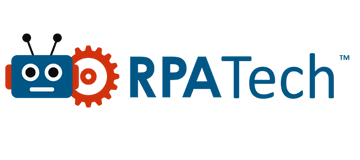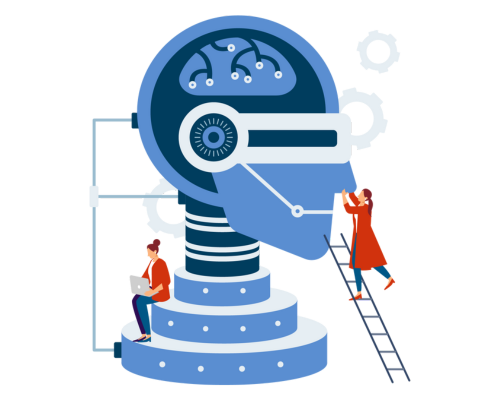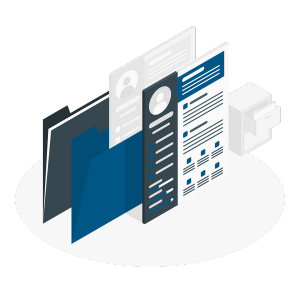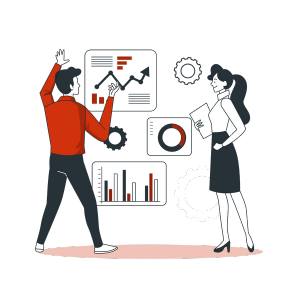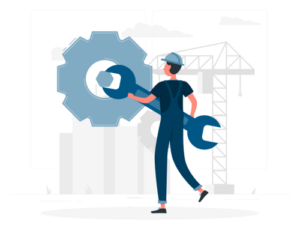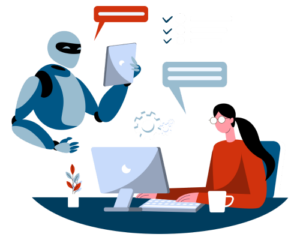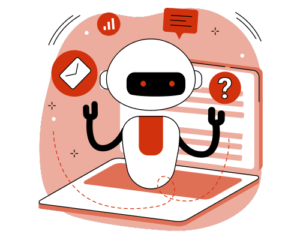Transforming the way we work and live, AI-powered automation is not just a trend, but a revolution. This revolution is not just changing industries, but reshaping the very fabric of productivity. By taking over mundane tasks, enhancing efficiency, and reducing costs, AI-powered automation is driving the future.
In this blog post we’ll understand:
- What is AI-Powered Automation?
- Key Components of AI-Powered Automation
- Benefits of AI-Powered Automation
- Use Cases of AI-Powered Automation
- Future Trends in AI-Powered Automation
What is AI-Powered Automation?
AI-powered automation is the use of artificial intelligence (AI) technologies to perform tasks without human intervention. This involves AI algorithms, machine learning models, and RPA working together to automate complex processes. Unlike traditional automation, which follows predefined rules, AI-powered automation learns and adapts over time, making it more versatile and effective.
Key Components of AI-Powered Automation
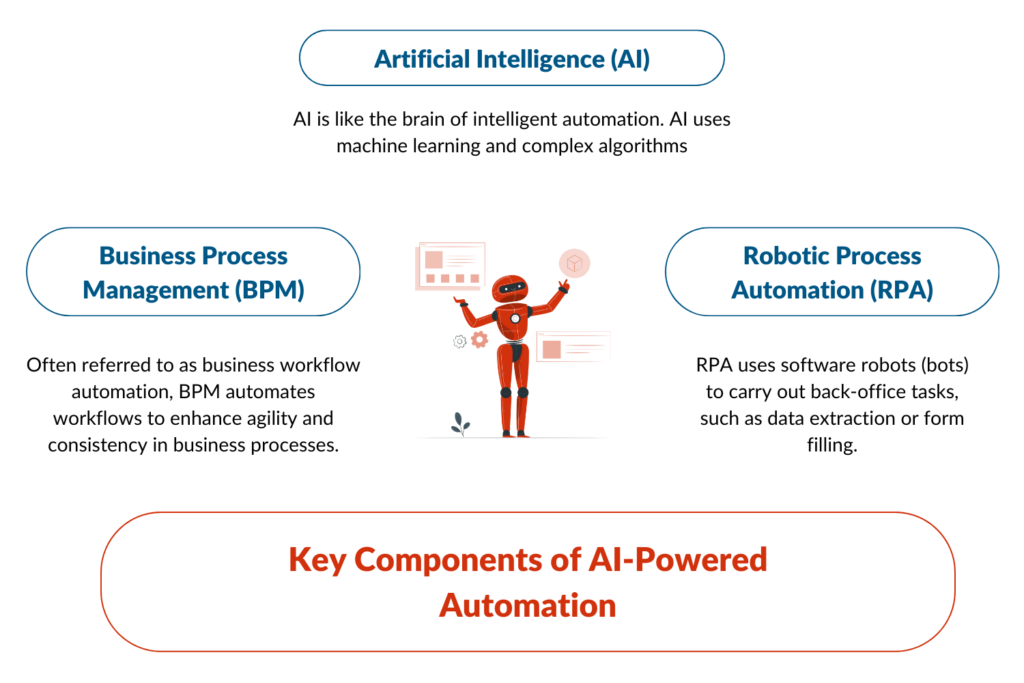
Businesses can use AI with process automation to improve their automation through AI-powered automation. In this section, we will talk about the key components of AI-powered automation.
Artificial Intelligence (AI)
Artificial Intelligence (AI) can be likened to the brain of intelligent automation. It performs tasks requiring human-like intelligence, including understanding language, recognizing patterns, and problem-solving. This is achieved through machine learning and complex algorithms that analyze and interpret all data types.
AI can create a thorough knowledge base in business from accumulated data, such as customer interactions and sales data. It identifies patterns and trends, providing important insights. These insights can predict future trends and behaviours, aiding business strategy and decision-making. Therefore, AI is more than an automation tool, it’s a strategic planning resource.
Business Process Management (BPM)
Business Process Management (BPM) is a strategy for managing and improving company workflows. By automating these processes, businesses become more agile and can quickly adapt to changes. BPM also reduces the chance of errors by ensuring consistency in process execution. Used in a wide range of industries, BPM streamlines operations to save costs and increase productivity. It also improves customer and employee experiences by making all processes run smoothly. In today’s competitive business world, BPM is essential for efficient operation.
Robotic Process Automation (RPA)
Robotic Process Automation (RPA) is a technology that utilizes software robots, commonly referred to as bots, to automate routine back-office tasks. These tasks can include a variety of functions such as data extraction or filling out forms. These software robots are designed to mimic human actions and are capable of executing tasks quickly and accurately, thereby increasing productivity and efficiency. These bots do not work in isolation, but rather in tandem with Artificial Intelligence (AI) technologies.
The integration of RPA with AI enables these bots to handle more complex tasks and use cases. This includes understanding natural language, making decisions based on predefined criteria, learning from past actions, and even predicting future trends. This combination of RPA and AI is transforming the way businesses operate by automating repetitive tasks and freeing up human resources for more strategic, value-added roles.
Benefits of AI-Powered Automation
Increased Efficiency
AI-powered automation can handle tasks faster and more accurately than humans, leading to significant improvements in productivity. For example, in manufacturing, AI can streamline the production process, reducing errors and speeding up output.
Cost Savings
By automating routine tasks, businesses can reduce labor costs. Additionally, AI-driven systems can work around the clock without breaks, further increasing cost efficiency.
Enhanced Accuracy
AI systems are less prone to errors compared to humans. They can process large volumes of data with high precision, making them ideal for tasks like data analysis, financial forecasting, and quality control.
Scalability
AI-powered solutions can easily scale operations to handle growing workloads without a corresponding increase in costs or effort. This is particularly beneficial for businesses experiencing rapid growth.
Improved Customer Experience
AI can provide personalized customer service, predicting customer needs and offering tailored solutions. Chatbots and virtual assistants are prime examples, offering 24/7 support and quick resolution of issues.
Use Cases of AI-Powered Automation
Finance
In the financial sector, AI-powered automation is used for fraud detection, risk assessment, and personalized banking services. Robo-advisors like Betterment and Wealthfront use AI to provide investment advice based on individual financial goals.
Manufacturing
AI-driven automation in manufacturing involves predictive maintenance, quality control, and supply chain optimization. Companies like Siemens and General Electric use AI to monitor equipment and predict failures before they occur, minimizing downtime and repair costs.
Healthcare
AI is revolutionizing healthcare by automating tasks such as patient data entry, diagnostic procedures, and even surgery. For instance, IBM’s Watson can analyze vast amounts of medical data to assist doctors in diagnosing and treating patients.
Retail
Retailers use AI-powered automation for inventory management, demand forecasting, and personalized shopping experiences. AI systems analyze customer preferences and purchasing habits to recommend products, much like how Netflix recommends shows based on viewing history.
Marketing
AI tools help marketers analyze consumer behavior, segment audiences, and create personalized marketing campaigns. Platforms like HubSpot and Salesforce use AI to optimize marketing efforts and improve ROI.
Customer Service
Companies like Amazon and Google use AI-driven chatbots to handle customer inquiries, providing instant responses and freeing up human agents for more complex issues.
Future Trends in AI-Powered Automation
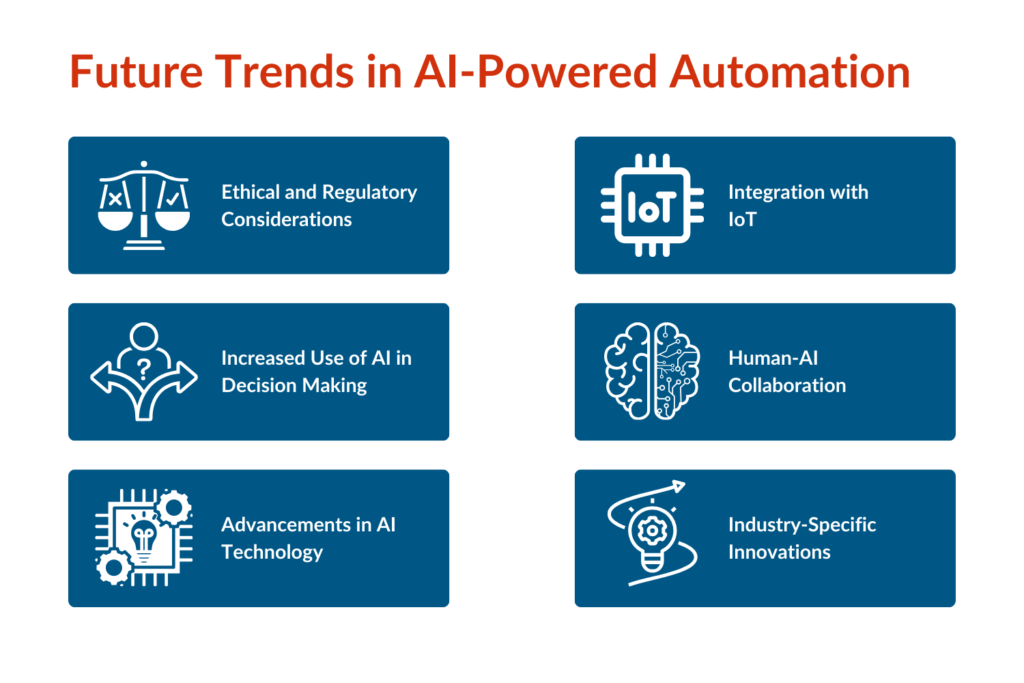
As we delve into the future trends of AI-powered automation, it’s important to remember that this technology is continuously evolving. It’s reshaping industries and redefining the way we work. The following are some potential trends that could shape the trajectory of AI-powered automation over the next few years.
Gartner’s recent market guide predicts that by 2027, 80% of enterprises will integrate AI-augmented testing tools into their software engineering toolchain, a significant rise from 15% in early 2023.
Ethical and Regulatory Considerations
As AI automation becomes more common in different sectors, ethical and regulatory issues will become more important. This includes fairness, transparency, and accountability in AI. It’s essential for regulators, industry leaders, and everyone else to make sure AI use follows our shared values and is done transparently for accountability. This is key for public trust and the long-term success of AI automation in all sectors.
Increased Use of AI in Decision-Making
In the digital age, Artificial Intelligence (AI) is becoming more important in business and strategic decision-making. This is due to AI’s superior ability to analyze and interpret large volumes of data quickly and accurately. AI can provide valuable insights and forecasts that assist businesses in making informed, strategic decisions. These decisions can vary from operational enhancements to strategic planning, greatly affecting a company’s performance and market competitiveness.
Advancements in AI Technology
Advancements in artificial intelligence will make automation more powerful and accessible, driving innovation in many fields. It’s not just about efficiency, AI also opens new possibilities for tech progress and changes our lives and work. The future will see AI and automation as integral parts of our lives, fueling a new wave of innovation.
Integration with IoT
The merging of Artificial Intelligence (AI) and the Internet of Things (IoT) is a game-changer for many industries. It makes systems smarter and more interconnected, and can significantly improve efficiency, productivity, and functionality. This merger can impact sectors from manufacturing to healthcare and signifies a future where technology is a vital part of our daily lives.
Human-AI Collaboration
The future is predicted to witness increased collaboration between humans and AI. AI is expected to handle routine tasks, while humans concentrate on strategic and creative work. A recent UiPath report reveals that 56% of organizations do not anticipate any workforce reduction. Rather, automation has served as a catalyst, driving role evolutions to maximize operational capacity and direct employees towards tasks that offer greater value.
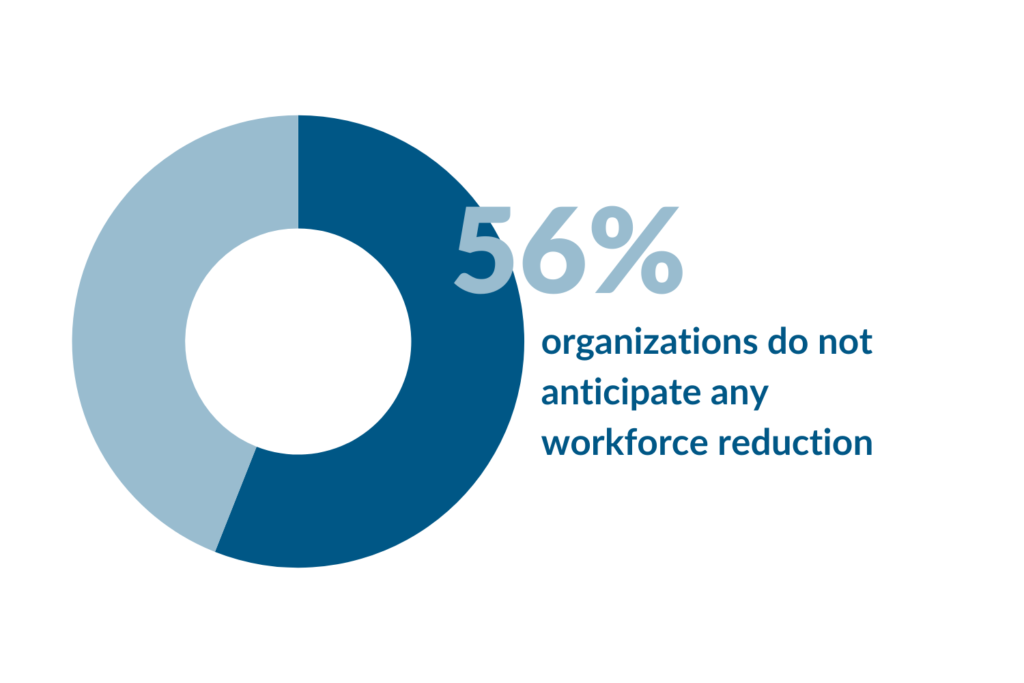
Industry-Specific Innovations
Every industry will see specific advancements in automation due to artificial intelligence. This technology will be customized to address the needs and challenges of each industry. This targeted approach will help apply AI technology efficiently and effectively across various industries.
Conclusion
In conclusion, AI-Powered Automation is a transformative technology that is revolutionizing industries by streamlining processes, enhancing productivity and driving cost efficiency. From finance and manufacturing to healthcare and retail, AI automation is being leveraged to optimize operations and deliver superior customer experiences. As AI technology continues to evolve, it will play a more significant role in decision-making, integrate with IoT, and foster human-AI collaboration. While we navigate these advancements, it’s crucial to consider the ethical and regulatory implications of widespread AI adoption. The future of AI-Powered Automation holds immense potential, making it an exciting area to watch.
Check out our AI-Powered Automation bundles here:
How RPATech Can Help?
We’re a company specializing in Intelligent Automation, utilizing AI to improve your business operations. See our Services & Solutions section for our full range of offerings.
Alternatively, you can book a consultation with our experts who will assist in identifying the best solutions for your business challenges.
We also offer a half-day discovery workshop. Here, we identify ideal processes for automation within your business, assess the feasibility and complexity of automation, and guide you on starting your automation journey.
